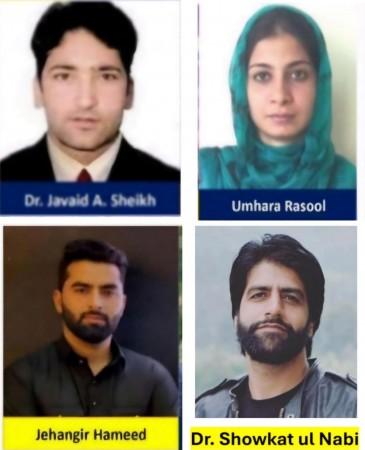
The University of Kashmir announced a breakthrough achievement by a team of researchers led by Dr. Javaid Ahmad Sheikh, Associate Professor in the Department of Electronics. The team has been awarded a prestigious UK design patent for their pioneering work on Semicircular Brain Tumor Detection using Antenna technology.
This cutting-edge innovation introduces a revolutionary design capable of detecting and localizing anomalies in the deeper regions of the brain, which marks a significant breakthrough in medical diagnostics. The antenna, designed for external use on the human body, prioritizes patient safety by minimizing potential hazards, all while providing real-time monitoring of brain activity.
The University of Kashmir lauded the achievement and extended its heartfelt congratulations to Dr. Sheikh and his dedicated team.
"The University of Kashmir is immensely proud of this achievement and extends heartfelt congratulations to Dr. Sheikh and his team for their dedication and hard work," the university said.

The design of the antenna can detect brain tumors and pinpoint their exact location inside the brain. This is done using a non-invasive method, and it doesn't involve surgery or inserting anything into the body.
How it works:
The researchers designed an antenna that looks like a semi-circular finger and is placed on the surface of the skin. It uses a special material called metamaterial, which helps the antenna work more effectively by improving its ability to detect signals deep inside the brain. This antenna sends and receives signals that can detect differences in the brain tissue, helping to locate anomalies like tumors.
The antenna can detect brain tumors quickly and with high accuracy. The metamaterial used in the design makes the antenna better at detecting tumors by focusing the signals more precisely on the target area.
Due to its non-invasive nature, real-time detection, and improved accuracy, this innovation can be an important tool in medical diagnostics, making it easier and safer to detect brain tumors.

















